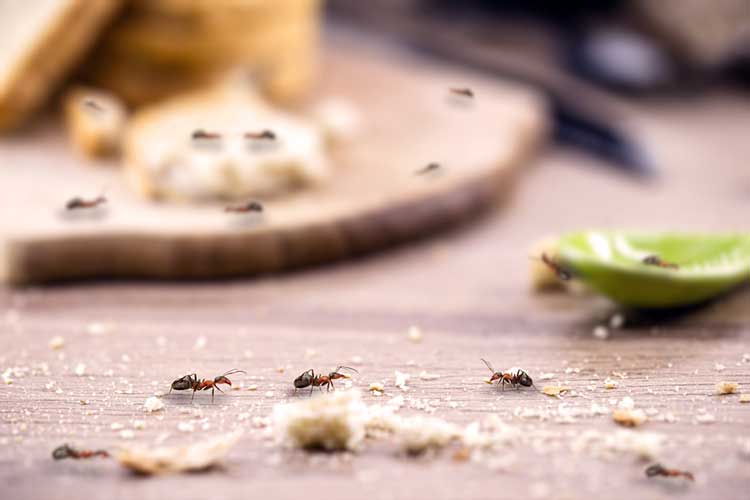How to Get Rid of Ants
Last updated November 2024

Many kinds of ants invade houses searching for food or nesting. They’re hard for non-pros to ID, except the large (black or red) carpenter ant, which hollows out damp wood to make its home and can be spotted by the coarse sawdust debris.
While most ants do very little damage and don’t usually spread disease, you don’t want them ambling over your food or up your leg. Carpenter ants do, however, occasionally weaken a house by hollowing out structural elements. But even this damage is usually limited.
How to Stop Them
If you can locate the ant nest—it’ll likely be outside—hit it with sprayable insecticide. To find it, follow the ants’ movements. If the ants live beneath your home or another structure you can’t reach with spray, cut off their paths into and out of your house or kitchen by caulking cracks and crevices. Other strategies: Store sugar, syrup, and honey in closed containers; clean up grease and spills; and eliminate indoor nesting sites, such as potted plants.
You might control a small infestation by sponging or mopping with soapy water surfaces where you see ants, which may remove their scent trails. Or try ant spray along the lower part of window frames and around doors; outdoors on pipes, posts, and pillars leading from the ground to the house; and into cracks in baseboards, walls, and floors, and around sinks, bathtubs, toilets, and kitchen cupboards.
Still being bugged? Consider placing baits (our favorite is Terro liquid) in multiple locations where ants can easily find them, but in spots that are inaccessible to children and pets. At first, you might see more ant action because you’ve set out a buffet for them, but they’ll take the poison back to their colony and spread it to others.
Since carpenter ants are drawn to damp wood, to banish them you must prevent water from accumulating on your house. Clean gutters and downspouts, and cut tree limbs and shrubs that overhang the house.
Hiring Help
You can control most household ants fairly easily. However, because their nests are often especially difficult to locate and treat, carpenter and pharaoh ants may require an exterminator.


